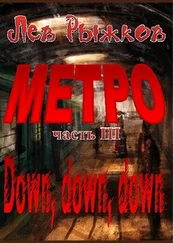Joris-Karl Huysmans - Down There (Là-Bas)
Здесь есть возможность читать онлайн «Joris-Karl Huysmans - Down There (Là-Bas)» весь текст электронной книги совершенно бесплатно (целиком полную версию без сокращений). В некоторых случаях можно слушать аудио, скачать через торрент в формате fb2 и присутствует краткое содержание. Жанр: Классическая проза, на английском языке. Описание произведения, (предисловие) а так же отзывы посетителей доступны на портале библиотеки ЛибКат.
- Название:Down There (Là-Bas)
- Автор:
- Жанр:
- Год:неизвестен
- ISBN:нет данных
- Рейтинг книги:3 / 5. Голосов: 1
-
Избранное:Добавить в избранное
- Отзывы:
-
Ваша оценка:
- 60
- 1
- 2
- 3
- 4
- 5
Down There (Là-Bas): краткое содержание, описание и аннотация
Предлагаем к чтению аннотацию, описание, краткое содержание или предисловие (зависит от того, что написал сам автор книги «Down There (Là-Bas)»). Если вы не нашли необходимую информацию о книге — напишите в комментариях, мы постараемся отыскать её.
Down There (Là-Bas) — читать онлайн бесплатно полную книгу (весь текст) целиком
Ниже представлен текст книги, разбитый по страницам. Система сохранения места последней прочитанной страницы, позволяет с удобством читать онлайн бесплатно книгу «Down There (Là-Bas)», без необходимости каждый раз заново искать на чём Вы остановились. Поставьте закладку, и сможете в любой момент перейти на страницу, на которой закончили чтение.
Интервал:
Закладка:
"At the same time that his alchemists abandon their unfruitful furnaces, Gilles begins a course of systematic gluttony, and his flesh, set on fire by the essences of inordinate potations and spiced dishes, seethes in tumultuous eruption.
"Now, there are no women in the château. Gilles appears to have despised the sex ever since leaving the court. After experience of the ribalds of the camps and frequentation, with Xaintrailles and La Hire, of the prostitutes of Charles VII, it seems that a dislike for the feminine form came over him. Like others whose ideal of concupiscence is deteriorated and deviated, he certainly comes to be disgusted by the delicacy of the grain of the skin of women and by that odour of femininity which all sodomists abhor.
"He depraves the choir boys who are under his authority. He chose them in the first place, these little psaltry ministrants, for their beauty, and 'beautiful as angels' they are. They are the only ones he loves, the only ones he spares in his murderous transports.
"But soon infantile pollution seems to him an insipid delicacy. The law of Satanism which demands that the elect of Evil, once started, must go the whole way, is once more fulfilled. Gilles's soul must become thoroughly cankered, a red tabernacle, that in it the Very Low may dwell at ease.
"The litanies of lust arise in an atmosphere that is like the wind over a slaughter house. The first victim is a very small boy whose name we do not know. Gilles disembowels him, and, cutting off the hands and tearing out the eyes and heart, carries these members into Prelati's chamber. The two men offer them, with passionate objurgations, to the Devil, who holds his peace. Gilles, confounded, flees. Prelati rolls up the poor remains in linen and, trembling, goes out at night to bury them in consecrated ground beside a chapel dedicated to Saint Vincent.
"Gilles preserves the blood of this child to write formulas of evocation and conjurements. It manures a horrible crop. Not long afterward the Marshal reaps the most abundant harvest of crimes that has ever been sown.
"From 1432 to 1440, that is to say during the eight years between the Marshal's retreat and his death, the inhabitants of Anjou, Poitou, and Brittany walk the highways wringing their hands. All the children disappear. Shepherd boys are abducted from the fields. Little girls coming out of school, little boys who have gone to play ball in the lanes or at the edge of the wood, return no more.
"In the course of an investigation ordered by the duke of Brittany, the scribes of Jean Touscheronde, duke's commissioner in these matters, compile interminable lists of lost children.
"Lost, at la Rochebernart, the child of the woman Péronne, 'a child who did go to school and who did apply himself to his book with exceeding diligence.'
"Lost, at Saint Etienne de Montluc, the son of Guillaume Brice, 'and this was a poor man and sought alms.'
"Lost, at Mâchecoul, the son of Georget le Barbier, 'who was seen, a certain day, knocking apples from a tree behind the hôtel Rondeau, and who since hath not been seen.'
"Lost, at Thonaye, the child of Mathelin Thouars, 'and he had been heard to cry and lament and the said child was about twelve years of age.'
"At Mâchecoul, again, the day of Pentecost, mother and father Sergent leave their eight-year-old boy at home, and when they return from the fields 'they did not find the said child of eight years of age, wherefore they marvelled and were exceeding grieved.'
"At Chantelou, it is Pierre Badieu, mercer of the parish, who says that a year or thereabouts ago, he saw, in the domain de Rais, 'two little children of the age of nine who were brothers and the children of Robin Pavot of the aforesaid place, and since that time neither have they been seen neither doth any know what hath become of them.'
"At Nantes, it is Jeanne Darel who deposes that 'on the day of the feast of the Holy Father, her true child named Olivier did stray from her, being of the age of seven and eight years, and since the day of the feast of the Holy Father neither did she see him nor hear tidings.'
"And the account of the investigation goes on, revealing hundreds of names, describing the grief of the mothers who interrogate passersby on the highway, and telling of the keening of the families from whose very homes children have been spirited away when the elders went to the fields to hoe or to sow the hemp. These phrases, like a desolate refrain, recur again and again, at the end of every deposition: 'They were seen complaining dolorously,' 'Exceedingly they did lament.' Wherever the bloodthirsty Gilles dwells the women weep.
"At first the frantic people tell themselves that evil fairies and malicious genii are dispersing the generation, but little by little terrible suspicions are aroused. As soon as the Marshal quits a place, as he goes from the château de Tiffauges to the château de Champtocé, and from there to the castle of La Suze or to Nantes, he leaves behind him a wake of tears. He traverses a countryside and in the morning children are missing. Trembling, the peasant realizes also that wherever Prelati, Roger de Bricqueville, Gilles de Sillé, any of the Marshal's intimates, have shown themselves, little boys have disappeared. Finally, the peasant learns to look with horror upon an old woman, Perrine Martin, who wanders around, clad in grey, her face covered-as is that of Gilles de Sillé-with a black stamin. She accosts children, and her speech is so seductive, her face, when she raises her veil, so benign, that all follow her to the edge of a wood, where men carry them off, gagged, in sacks. And the frightened people call this purveyor of flesh, this ogress, ' La Mefrraye,' from the name of a bird of prey.
"These emissaries spread out, covering all the villages and hamlets, tracking the children down at the orders of the Chief Huntsman, the sire de Bricqueville. Not content with these beaters, Gilles takes to standing at a window of the château, and when young mendicants, attracted by the renown of his bounty, ask an alms, he runs an appraising eye over them, has any who excite his lust brought in and thrown into an underground prison and kept there until, being in appetite, he is pleased to order a carnal supper.
"How many children did he disembowel after deflowering them? He himself did not know, so many were the rapes he had consummated and the murders he had committed. The texts of the times enumerate between, seven and eight hundred, but the estimate is inaccurate and seems overconservative. Entire regions were devastated. The hamlet of Tiffauges had no more young men. La Suze was without male posterity. At Champtocé the whole foundation room of a tower was filled with corpses. A witness cited in the inquest, Guillaume Hylairet, declared also, "that one hight Du Jardin hath heard say that there was found in the said castle a wine pipe full of dead little children.'
"Even today traces of these assassinations linger. Two years ago at Tiffauges a physician discovered an oubliette and brought forth piles of skulls and bones.
"Gilles confessed to frightful holocausts, and his friends confirmed the atrocious details.
"At dusk, when their senses are phosphorescent, enkindled by inflammatory spiced beverages and by 'high' venison, Gilles and his friends retire to a distant chamber of the château. The little boys are brought from their cellar prisons to this room. They are disrobed and gagged. The Marshal fondles them and forces them. Then he hacks them to pieces with a dagger, taking great pleasure in slowly dismembering them. At other times he slashes the boy's chest and drinks the breath from the lungs; sometimes he opens the stomach also, smells it, enlarges the incision with his hands, and seats himself in it. Then while he macerates the warm entrails in mud, he turns half around and looks over his shoulder to contemplate the supreme convulsions, the last spasms. He himself says afterwards, 'I was happier in the enjoyment of tortures, tears, fright, and blood, than in any other pleasure.'
Читать дальшеИнтервал:
Закладка:
Похожие книги на «Down There (Là-Bas)»
Представляем Вашему вниманию похожие книги на «Down There (Là-Bas)» списком для выбора. Мы отобрали схожую по названию и смыслу литературу в надежде предоставить читателям больше вариантов отыскать новые, интересные, ещё непрочитанные произведения.
Обсуждение, отзывы о книге «Down There (Là-Bas)» и просто собственные мнения читателей. Оставьте ваши комментарии, напишите, что Вы думаете о произведении, его смысле или главных героях. Укажите что конкретно понравилось, а что нет, и почему Вы так считаете.












